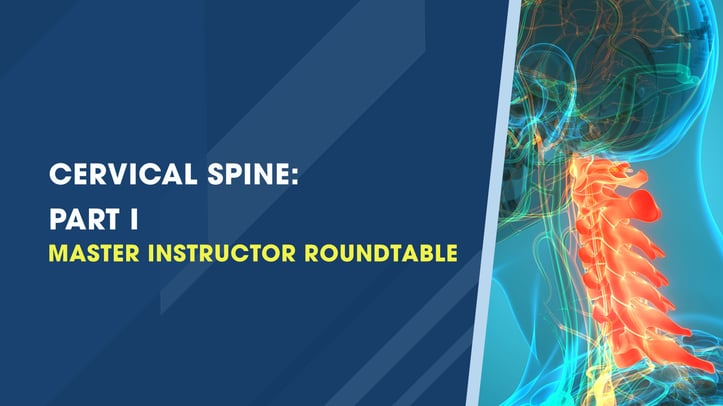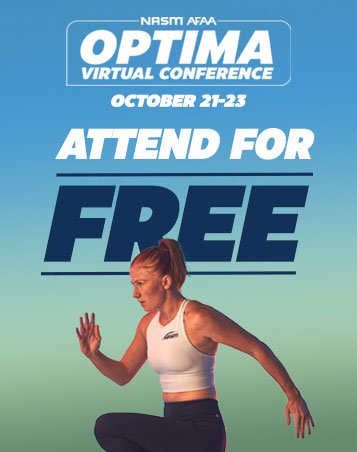也许一个客户在最后一分钟取消了,一个朋友不回你的短信,或者你的同事在你说话的时候查看了手机。这种情况会让我们把事情个人化,但如果我们能把精力放在更积极的事情上呢?
加入NASM大师导师Angie Miller,了解我们为什么个性化事物以及如何停止。
转录:
安吉米勒:
各位,欢迎来到我们的“坚强心灵”。强壮的身体“播客。我是主持人,安吉·米勒。今天我要讲的是如何停止把事情个人化,比如客户在最后一分钟取消了,或者你的朋友没有回复你刚发的短信。
或者是同事在你说话的时候看了她的手机,这种情况会让我们把事情个人化,我们内化那种伤痛,我们觉得这是私人的事情。所以今天,我将直接告诉你们为什么我们要把事情个人化?更重要的是,我们怎样才能不往心里去?我们如何把我们的时间、精力和注意力投入到更强大的积极思维中去?好吧,所以我选择了这个话题,因为让我们面对现实吧,我认为我们每个人在生活中的某些时候都会把事情看得很私人,你不觉得吗?
因为现实是,当我们这样做的时候,会让我们在情感上精疲力竭。真的很累人,试图找出为什么有人说他们说或做他们所做的,我们需要很多的时间和精力试图找出为什么别人那样做,真的,这些都是我们无法控制的事情,我们无法控制别人说什么,做什么,我们只能控制我们所说和所做的。所以在一天结束的时候,把事情个人化,它也磨损了我们的自尊。问题是,有很多东西是我们无法控制的。让我们再举一个例子,一个客户在最后一刻取消了我们的约会,或者一个朋友没有回我们的短信,但是你和另一个朋友聊天,那个朋友说,哦,我刚和她通完电话。
或者是说可以和你共进晚餐的朋友。但后来你在社交媒体上看到她和一群朋友出去吃饭了。或者你想和你的伴侣谈谈你喜欢的那个朋友。然后你就知道,你的搭档在看手机。或者你在工作会议上发言,你转过身看到两个同事互相看对方,我们大多数人,至少会有一两次这样的情况。我们可能会感到愤怒或受伤。也许我们甚至觉得被背叛了。也许我们觉得不受尊重或被冒犯了。也许我们感到失望,因为这毕竟让人觉得不体贴。这感觉有点粗鲁,对吧? But is it really about us? Do people really say and do things with us at the forefront of their mind? I'm going to venture a big guess here that probably not. Probably most times we don't even register in people's radar when they're speaking or acting or behaving. So why don't we internalize that and take it to heart? Well, according to Frederick, Mo, a communications expert, he says we personalize things because our ego gets in the way. Remember when Freud talked about the ego, anybody took psych 101 in college, I love that class. So our ego gets in the way we blame other people for hurting our frustration, because we believe that they should take us into consideration before they think x he can do right? He says that our ego doesn't want to feel wounded. Because we want to we want to feel acknowledged and heard and understood when you agree with that. I think that makes sense to me.
所以他说了很多关于自我的事,我们我们的自我是如何进入我们的自我的,等等,等等,你知道,你在那之前没有想过我吗?但事实可能并非如此。我认为我们对待别人的其他一些原因是因为我们作为教练和集体健身教练,我们是取悦他人的人。我们有一种与生俱来的本能,比如,我需要拯救世界,就像我们有训练录像带,我们想拯救世界。我们想让别人感到快乐和成功。但事实是,我们都知道我们不可能让每个人都满意。但我们不能。我们不能控制别人对我们的看法。他们是否把和我们在一起的时间放在首位,或者他们是否重视我们的服务,我们无法控制他们是否是一个好的倾听者,或者他们是否认真倾听我们要说的话。我们无法控制任何一个因为这些只是与它们有关的外部变量。 And even when we strive to always kind of do the right thing, even when we give it our all we're not always going to please everyone and some people are just going to overlook our efforts.
你能相信我知道这是一个吞咽的硬丸,对吗?所以我们必须接受我们只是我们尽力而为。我们是一个善良的善良的人,我们正在尽力而为。我们只需要留下真实的行为,以及与我们的价值观保持一致的言语和行动,而不是留下任何人。但只是为了肯定,早上让我们起床。所以,我是安吉米勒,这是我们强烈的头脑,强大的身体播客,我在谈论为什么我们拿走个人。我认为我们所有人都在我们生命中的某些人在某种程度上取得了一两件事,有人说或做过或发生的情况。所以另一个原因是因为我从明智开始,我要告诉我们如何停止。所以我认为我们认为个人的另一个原因是因为我们认为这是关于我们的。而且你就像我们这样做,因为这是这样的,然后我的意思是,我的朋友被解雇了晚餐不是关于我的。 But just as I mentioned about ego earlier, our ego believes that it is about us. But what if it really isn't worth it has nothing to do with us at all. Maybe with our partner who checked their phone, when we were talking to them about the friend that we thought this does. Maybe he or she just got a really super important text message from their boss that they had been waiting for. Maybe the knowing look between our co workers was actually like a Yes, I'm so glad she said that. Because we've been wanting to say that, maybe they're on the same page, and they are actually on in our corner. So Frederick Embo says that we shift the focus from me like that hurt me why they do that to me, too, we, then we can avoid taking things so personal. Because if we try to see the intention, and other people, then we look at it from their perspective, we automatically broaden our lens, because see, we only see the way that it impacts us. But if we broaden our lens, or we look at their intention, and we look at it instead of me, we then we maybe gain more understanding instead of irritation. And maybe you know, sometimes our insecurities or ego just kind of takes over insecurities, and then we see or we personalize it and think the worst case scenario, but perspective just really broadens our lens. And not to mention, you know, that friend who joined other friends for dinner, that client who cancels that last minute, if that was ice, for some reason, a slight on their part. And if it wasn't, you know, the knowing look wasn't a look like they were on our side, or the friend just you know, wanted to go out with another group of friends because thought she would have more friend, fun, even if it is that we have to remember that other people's actions and words and behaviors is a reflection on what's going on in their world. It's not a reflection on us, we really don't know their concerns or their struggles. We don't know their priorities or their insecurities.
各位,欢迎来到我们的“坚强心灵”。强壮的身体“播客。我是主持人,安吉·米勒。今天我要讲的是如何停止把事情个人化,比如客户在最后一分钟取消了,或者你的朋友没有回复你刚发的短信。
或者是同事在你说话的时候看了她的手机,这种情况会让我们把事情个人化,我们内化那种伤痛,我们觉得这是私人的事情。所以今天,我将直接告诉你们为什么我们要把事情个人化?更重要的是,我们怎样才能不往心里去?我们如何把我们的时间、精力和注意力投入到更强大的积极思维中去?好吧,所以我选择了这个话题,因为让我们面对现实吧,我认为我们每个人在生活中的某些时候都会把事情看得很私人,你不觉得吗?
因为现实是,当我们这样做的时候,会让我们在情感上精疲力竭。真的很累人,试图找出为什么有人说他们说或做他们所做的,我们需要很多的时间和精力试图找出为什么别人那样做,真的,这些都是我们无法控制的事情,我们无法控制别人说什么,做什么,我们只能控制我们所说和所做的。所以在一天结束的时候,把事情个人化,它也磨损了我们的自尊。问题是,有很多东西是我们无法控制的。让我们再举一个例子,一个客户在最后一刻取消了我们的约会,或者一个朋友没有回我们的短信,但是你和另一个朋友聊天,那个朋友说,哦,我刚和她通完电话。
或者是说可以和你共进晚餐的朋友。但后来你在社交媒体上看到她和一群朋友出去吃饭了。或者你想和你的伴侣谈谈你喜欢的那个朋友。然后你就知道,你的搭档在看手机。或者你在工作会议上发言,你转过身看到两个同事互相看对方,我们大多数人,至少会有一两次这样的情况。我们可能会感到愤怒或受伤。也许我们甚至觉得被背叛了。也许我们觉得不受尊重或被冒犯了。也许我们感到失望,因为这毕竟让人觉得不体贴。这感觉有点粗鲁,对吧? But is it really about us? Do people really say and do things with us at the forefront of their mind? I'm going to venture a big guess here that probably not. Probably most times we don't even register in people's radar when they're speaking or acting or behaving. So why don't we internalize that and take it to heart? Well, according to Frederick, Mo, a communications expert, he says we personalize things because our ego gets in the way. Remember when Freud talked about the ego, anybody took psych 101 in college, I love that class. So our ego gets in the way we blame other people for hurting our frustration, because we believe that they should take us into consideration before they think x he can do right? He says that our ego doesn't want to feel wounded. Because we want to we want to feel acknowledged and heard and understood when you agree with that. I think that makes sense to me.
所以他说了很多关于自我的事,我们我们的自我是如何进入我们的自我的,等等,等等,你知道,你在那之前没有想过我吗?但事实可能并非如此。我认为我们对待别人的其他一些原因是因为我们作为教练和集体健身教练,我们是取悦他人的人。我们有一种与生俱来的本能,比如,我需要拯救世界,就像我们有训练录像带,我们想拯救世界。我们想让别人感到快乐和成功。但事实是,我们都知道我们不可能让每个人都满意。但我们不能。我们不能控制别人对我们的看法。他们是否把和我们在一起的时间放在首位,或者他们是否重视我们的服务,我们无法控制他们是否是一个好的倾听者,或者他们是否认真倾听我们要说的话。我们无法控制任何一个因为这些只是与它们有关的外部变量。 And even when we strive to always kind of do the right thing, even when we give it our all we're not always going to please everyone and some people are just going to overlook our efforts.
你能相信我知道这是一个吞咽的硬丸,对吗?所以我们必须接受我们只是我们尽力而为。我们是一个善良的善良的人,我们正在尽力而为。我们只需要留下真实的行为,以及与我们的价值观保持一致的言语和行动,而不是留下任何人。但只是为了肯定,早上让我们起床。所以,我是安吉米勒,这是我们强烈的头脑,强大的身体播客,我在谈论为什么我们拿走个人。我认为我们所有人都在我们生命中的某些人在某种程度上取得了一两件事,有人说或做过或发生的情况。所以另一个原因是因为我从明智开始,我要告诉我们如何停止。所以我认为我们认为个人的另一个原因是因为我们认为这是关于我们的。而且你就像我们这样做,因为这是这样的,然后我的意思是,我的朋友被解雇了晚餐不是关于我的。 But just as I mentioned about ego earlier, our ego believes that it is about us. But what if it really isn't worth it has nothing to do with us at all. Maybe with our partner who checked their phone, when we were talking to them about the friend that we thought this does. Maybe he or she just got a really super important text message from their boss that they had been waiting for. Maybe the knowing look between our co workers was actually like a Yes, I'm so glad she said that. Because we've been wanting to say that, maybe they're on the same page, and they are actually on in our corner. So Frederick Embo says that we shift the focus from me like that hurt me why they do that to me, too, we, then we can avoid taking things so personal. Because if we try to see the intention, and other people, then we look at it from their perspective, we automatically broaden our lens, because see, we only see the way that it impacts us. But if we broaden our lens, or we look at their intention, and we look at it instead of me, we then we maybe gain more understanding instead of irritation. And maybe you know, sometimes our insecurities or ego just kind of takes over insecurities, and then we see or we personalize it and think the worst case scenario, but perspective just really broadens our lens. And not to mention, you know, that friend who joined other friends for dinner, that client who cancels that last minute, if that was ice, for some reason, a slight on their part. And if it wasn't, you know, the knowing look wasn't a look like they were on our side, or the friend just you know, wanted to go out with another group of friends because thought she would have more friend, fun, even if it is that we have to remember that other people's actions and words and behaviors is a reflection on what's going on in their world. It's not a reflection on us, we really don't know their concerns or their struggles. We don't know their priorities or their insecurities.
也许那个朋友,和她一起出去的那群朋友也许他们有共同之处,也许她在工作上有很多压力。结果是,这些和她一起出去的人和她一起工作,她觉得她会在一个理解和同理心的空间。但我们真的不知道别人的世界里发生了什么。让我们假设最坏的情况,这是一项工作,或者是出于恶意,或者是为了操纵我们,我们必须记住其他人的言行,同样,是对他们的反映。它表明了他们是谁而不是我们是谁。所以让他们自己收拾东西会更好。第三个原因是我们为什么会把人当成私人的。
我是Angie Miller,我要讲的是我们为什么要把事情个人化以及我们如何停止。我谈到了自我。然后我谈到,因为我们认为这是关于我们自己的,我们认为别人说的和做的都是关于我们自己的。第三个原因,我认为我们把人当成私人的是我们反复思考。我奶奶常说这是小题大做。就是我们把发生过的事或者别人说过的话,揉到恶心的地步。我们的大脑开始耍诡计。我们反复思考,一遍又一遍地播放,它只是不停地旋转。所以我们会想他们生我的气了吗?哦,我说错什么了吗? Or why did they say that? What did they mean? or How come they didn't invite me? Or what was that knowing look that they just gave each other? So in the end ruminating is overthinking and it really gives a lot of power to situations and people when really again, we have no context. We really don't know what's going on in their world. We really don't know the meaning behind their words or their behaviors and sometimes they don't know the meaning behind their words and their behaviors.
很有可能他们在说或做的时候并没有想到这一点。它不是个人。这不是关于我们的,如果我们拓宽视野,用更广阔的视角看问题,就会有所帮助。这就是我认为我们要把人或事个人化的三个原因。这只是我们的自我意识。我们认为它是关于我们自己的,我们反复思考,我们在脑海里一遍又一遍地播放它,我们的头脑让它变得更大。但最重要的是,我真的想和你们分享一些我们可以停止个人化的方法,因为N再一次个人化,这是它的情感消耗。你知道,这对我们的自尊很重要,我们要学会不把每时每刻发生的事情个人化。因为很多时候,它们不是针对个人的,它们根本不是关于我们的。所以,为了挽救我们的自尊,让我们的思想更健康,我认为重要的是,记住一些健康的建议,如何不个人化的情况。 So the first one, and this might be unexpected. But the first one is practice empathy. What if empathy, rather than irritation is the first thought that comes to our mind when someone says or does something that offends us? And the reason why is because, you know, a lot of times, our first reaction is kind of like anger or irritation, or we feel kind of spicy. We're like, oh, the nerve of them, I can't believe they did that. Or maybe we're hurt.
很有可能他们在说或做的时候并没有想到这一点。它不是个人。这不是关于我们的,如果我们拓宽视野,用更广阔的视角看问题,就会有所帮助。这就是我认为我们要把人或事个人化的三个原因。这只是我们的自我意识。我们认为它是关于我们自己的,我们反复思考,我们在脑海里一遍又一遍地播放它,我们的头脑让它变得更大。但最重要的是,我真的想和你们分享一些我们可以停止个人化的方法,因为N再一次个人化,这是它的情感消耗。你知道,这对我们的自尊很重要,我们要学会不把每时每刻发生的事情个人化。因为很多时候,它们不是针对个人的,它们根本不是关于我们的。所以,为了挽救我们的自尊,让我们的思想更健康,我认为重要的是,记住一些健康的建议,如何不个人化的情况。 So the first one, and this might be unexpected. But the first one is practice empathy. What if empathy, rather than irritation is the first thought that comes to our mind when someone says or does something that offends us? And the reason why is because, you know, a lot of times, our first reaction is kind of like anger or irritation, or we feel kind of spicy. We're like, oh, the nerve of them, I can't believe they did that. Or maybe we're hurt.
也许我们甚至会哭,因为我们在社交媒体上看到他们都没带我们一起吃晚饭。这感觉这感觉很伤人,对吧?但是想象一下,同理心不是同情,同理心是把自己放在别人的位置上。所以如果我们能有一分钟的同理心,我们按摩一下,让我们,让我们分解一下。同理心就像,想象自己是一个完全不知道自己对他人的影响或影响的人,或者他们根本不在乎。好吧?所以有这样的人,我们可以生气,我们能感觉到自义,或者我们可以感到同情,天哪,我不能想象一个不关心别人的人,谁没有个人见解,甚至不承认我对其他人的影响,我们不会想成为那个人。所以也许我们只是在内心和大脑中找到一点空间来给他们一点同情。因为谢天谢地,我们不是那种人,对吧?或者想象一下,你说了一些你不想说的话,希望你能收回这些话。 I don't have to imagine that one for very long. Because I feel like I do it a lot. I feel like I do it a lot where I put my foot in my mouth, do you.
所以我们所有人都有过这样的经历,我们说了一些话,结果却完全错了?我们会想,哦,倒带键在哪里,我真的不是有意让它变成那样的。所以有时候同理心是有帮助的,因为有时候人们并不想让事情以这种方式发生。或者想象一下身处一个糟糕的地方。肩负着整个世界的重担。你与他人互动的方式只是你所感受到和经历的困难的反映。有时候,当人们表现出他们的行为方式时,我们听到他们说的话或做的事真的是同理心很强大,因为我们真的不知道他们在他们的世界里处于什么位置,我们真的不知道他们正在经历什么。想象我们在最糟糕的时刻,当我们压力很大,当我们的工作不顺利,或者我们有太多的责任,或者我们睡不着觉,或者我们感觉不舒服,我们没有表现出最好的自己。如果其他人对我们感同身受,并在那些时刻给予我们善意的怀疑,这不是很神奇吗?因为事实是,我们不知道别人的世界里发生了什么。 But we do know this, we do know that their words, their actions, and their behaviors are a reflection of what's going on in their world. We know it's not a reflection of what's going on in ours, but we definitely know it's a reflection of what's going on in their world. But you know, here's the deal. We can also practice empathy for ourselves.
所以,是的,我在练习或推广我们对他人的同理心。但我认为一点个人的同理心是很重要的,我认为坐下来反思,想想,嗯,该死,那种伤害是可以接受的。就像我在晚餐时看到我的朋友一样。我邀请了一个朋友和我共进晚餐,这让我很受伤。即使从逻辑上讲,我可能知道我的朋友想和同事一起出去,因为她真的需要深入了解工作中发生的所有事情,她需要一个好的倾听者。我的逻辑部分并不总是与我的情感部分相联系。所以我认为给自己一点个人的同理心是有帮助的,你知道吗,我可以对别人练习同理心,我也可以给自己一些个人的同理心。你知道,当我在心里想的时候,你知道,这确实很伤人,我必须承认也许明天,或者第二天,我可以去找我的朋友,我可以承认这有点伤人。我可以有点脆弱,让我的朋友进入那个空间,诚实地不去责怪她,或羞辱她。但是让她知道,你知道的,我的感受,也许给她一个解释的机会,或者只是,你知道,给她一个机会说,嘿,你知道吗,安琪,我很抱歉,我打赌那感觉不好。 But I want you to know, it really wasn't about you at all. It was just about me needing to talk to my co workers.
我是安琪·米勒,我要讲的是为什么我们要把事情个人化。我讲了我们为什么要这样做的三个原因现在我要讲一些我们可以停止的方法。我建议人们学会停止把事情个人化的第一个方法是练习对他人和自己的同理心,试着设身处地为他们着想,意识到我们不知道他们的世界在发生什么,但同时也要给自己个人的同理心,并意识到即使我们不知道他们的世界里发生了什么,这并不意味着它没有伤害。如果它很痛,那也没关系,也许我们是某些人,我们可以分享这种脆弱,并在一两天内告诉他们,这真的让人感觉不太好。好吧。所以我认为我们可以停止把事情个人化的第二种方法是,我们可以学会放下一些事情。我不是说,随它去,随它去,喔呼。我不是那个意思。我觉得这有点老生常谈了,算了吧。 said no one ever in a helpful way, it can come across as very kind of patronizing, right. But I'm saying that sometimes we attach personal meaning to situations that don't have that aren't personal, right. So like when our friend doesn't respond to our text, and then our other friend says that she just spoke to her or sister doesn't call us back or partner, you know, feels like we feel like our partner's not listening. Sometimes we just have to let those things go. And remember that everything is that personal, when we hyper focus on those small nuances that people do without even really thinking about it. Because sometimes, again, they're just not in our world, they're in their world.
我们陷入其中会侵蚀我们的积极性,我们会陷入思考人们想法,行为和行动的细微差别。比如,你知道,你有没有开着车被人甩过?或者他们打开窗户,开始对你大喊大叫?嗯,我发生。你可能会想,也许你只是开车技术不好。不过,我听说了。它让我很辣。但有时我甚至会有自己的想法,比如我是不是开车开得不好,我是不是忘了开转向灯。说真的,谁会这么说,只是,你知道的,不是说那个对我发火的人。也许他只是和他的搭档吵了一架,或者他上班迟到了。 And he's blaming traffic, and it just so happens on the car in front of him. So sometimes, we just have to let those small things go. Because you know, that's a situation and a person that I just can't control. That guy in traffic doesn't know that I'm a good person. And quite frankly, he doesn't care if I'm a good person. He's just feeling spicy, and he wants somebody to take it out on right. So that's the kind of thing that I just have to let it go, where it's going to erode my positivity. That's the kind of thing when we let those small things build up. At the end of the day, we're likely to be like, Oh, I had a bad day. And then if we break it down, it might boil down to small things like the dude who flipped us off that we don't even know it's like, ah, does that really deserve that much space? I don't think so. So, at the end of the day, I try to remind myself to let those things go, I try to remind myself to practice empathy. What if he did just have a fight with his partner? He's just not a good space. I've been there before, have you? And then I try to use people like that as a reminder of the person that I don't want to be right. I don't want to be that person. So why am I worried that he's that way? I to remind myself next time I get frustrated in traffic not to be that guy. Okay. So again, I'm Angie Miller, I'm talking about why we personalize things and how we can stop. So I talked about practicing empathy, and then I talked about letting it go. And the third way that I think that we can refrain from personalizing things is to create distance. So if the top two don't work, if practicing empathy isn't working, if letting it go isn't working, how about creating distance between put some time and some space between whatever it is that that person just said to you, or whatever it is, that just happened?
正确的。所以有些人是高反应者,如果那个人把他掀翻了,哦,他们的窗户打开了,把他掀翻了。这就是你看到的两个人在高速公路上飙车,互相追逐,不停地按喇叭,几乎破坏了其他人的生活,因为其中一个反应很糟糕。所以另一个人,你知道,上钩了,现在他们的反应很差。如果我们在刚刚发生的事情之间制造距离会怎样?当时的情况和我们最初的本能反应是,哦,你知道,我无法忍受那样的人。如果我们在这两者之间留出一些时间和空间,也许我们会呼吸,也许在下一个红绿灯时,我们会坐下来呼吸。我们提醒自己,人们拥有的权力和我们拥有的一样多,对吧?人们只拥有我们赋予他们的力量。那么有多少能量呢? Are we going to give to perfect strangers? Or how much power are we going to give to Little things like, my spouse checked his phone when I was talking to him, or my sister didn't call me back last night? Why deep dive into other people's muck because again, we don't know where they are in their world. So we can spend a lot of time and emotional energy on things that can't be unsaid or on done, or we can take our power back, and we can determine, okay, this was said this was done. What am I going to do in response? How am I going to salvage my dignity and self respect? Is this something that is worth me picking up and discussing with this person? Or is this something that's just better left alone, and maybe I should just let it go. So if we don't know, if we can't find that empathy, and we can't let it go, maybe we just create some distance. And then we, you know, come back to it later if we need to. And that is the fourth way that I want to talk to you about. And that is coming back later. So we create distance. And now we we decide whether or not we're going to come back to it. And this is the fourth way that I think that we can not personalize things. So now we've created distance, and maybe you know, we get home. And we decide that we're upset because our boss didn't respond to our project the way that we wanted them to, or those two co workers who gave a knowing look, maybe we find that they do that a lot in an attorney to really erode our self esteem. So we feel like it needs to be addressed. So we open up our computer and we type an email out. But but but please, here's the big caveat, please wait 24 hours before you send that email, let that spiciness get out of your system so that you don't say or do something you're going to regret. So maybe you write it all out, you tell your story, you tell your the way that you feel about this situation using i i statements, of course, but you give it 24 hours before you actually send it. So in 24 hours from now, if you go back and you read that email, and you still feel that strongly, okay, it's probably pretty safe to send, because your nervous system has calmed down, you're just in a healthier space. But if you can try to do it in person, the goal is that with time and distance, your emotions are more in check, right? So you can talk to the other person, you can let them know how you feel. You can talk to your friend and say, Hey, you know what's interesting is last night, I texted you, and I didn't hear back from you. And then I was talking to my you know, our other friend and she said that you guys have been talking and I'm just wondering, you know, I think I took a personal I'm wondering, was that personal? Or did you just have a lot going on?
正确的。所以有些人是高反应者,如果那个人把他掀翻了,哦,他们的窗户打开了,把他掀翻了。这就是你看到的两个人在高速公路上飙车,互相追逐,不停地按喇叭,几乎破坏了其他人的生活,因为其中一个反应很糟糕。所以另一个人,你知道,上钩了,现在他们的反应很差。如果我们在刚刚发生的事情之间制造距离会怎样?当时的情况和我们最初的本能反应是,哦,你知道,我无法忍受那样的人。如果我们在这两者之间留出一些时间和空间,也许我们会呼吸,也许在下一个红绿灯时,我们会坐下来呼吸。我们提醒自己,人们拥有的权力和我们拥有的一样多,对吧?人们只拥有我们赋予他们的力量。那么有多少能量呢? Are we going to give to perfect strangers? Or how much power are we going to give to Little things like, my spouse checked his phone when I was talking to him, or my sister didn't call me back last night? Why deep dive into other people's muck because again, we don't know where they are in their world. So we can spend a lot of time and emotional energy on things that can't be unsaid or on done, or we can take our power back, and we can determine, okay, this was said this was done. What am I going to do in response? How am I going to salvage my dignity and self respect? Is this something that is worth me picking up and discussing with this person? Or is this something that's just better left alone, and maybe I should just let it go. So if we don't know, if we can't find that empathy, and we can't let it go, maybe we just create some distance. And then we, you know, come back to it later if we need to. And that is the fourth way that I want to talk to you about. And that is coming back later. So we create distance. And now we we decide whether or not we're going to come back to it. And this is the fourth way that I think that we can not personalize things. So now we've created distance, and maybe you know, we get home. And we decide that we're upset because our boss didn't respond to our project the way that we wanted them to, or those two co workers who gave a knowing look, maybe we find that they do that a lot in an attorney to really erode our self esteem. So we feel like it needs to be addressed. So we open up our computer and we type an email out. But but but please, here's the big caveat, please wait 24 hours before you send that email, let that spiciness get out of your system so that you don't say or do something you're going to regret. So maybe you write it all out, you tell your story, you tell your the way that you feel about this situation using i i statements, of course, but you give it 24 hours before you actually send it. So in 24 hours from now, if you go back and you read that email, and you still feel that strongly, okay, it's probably pretty safe to send, because your nervous system has calmed down, you're just in a healthier space. But if you can try to do it in person, the goal is that with time and distance, your emotions are more in check, right? So you can talk to the other person, you can let them know how you feel. You can talk to your friend and say, Hey, you know what's interesting is last night, I texted you, and I didn't hear back from you. And then I was talking to my you know, our other friend and she said that you guys have been talking and I'm just wondering, you know, I think I took a personal I'm wondering, was that personal? Or did you just have a lot going on?
再次,让自己易于攻击并邀请你的朋友进入那个空间,让他或她解释他们在那种情况下的地方吗?准备好,虽然真实地倾听,不要从你知道的地方倾听,想要责怪或羞辱他们,但是真实地听,因为也许有建设性的东西,你可以学习,也许你对你的朋友和你的朋友说了一些事情个人。所以她正在休息24小时。但无论哪种方式,你都要说出你的思想。当我们谈谈我们的思想时,我认为这是安心,不是吗?我这样做。所以你知道,首先,我们可以学习不或我们可以学会克服个性化的人或停止个性化的情况是练习同理化。二号,让它走。你知道第三号码,尝试创建距离和第四个,稍后回来。 Okay, so number five. Last but not least, I think the last way that I have that we can not personalize situations is to be the bigger person. I think that sometimes in the end, we just have to know our worth. And if somebody does blatantly disrespect us and we do feel that it was blatantly disrespectful, we you know, isn't worth our time and energy um, If it, you know, is it worth going into the muck with them.
我妈妈以前常说永远不要屈就别人的水平也不要寻求报复因为那是你的良心,不是他们的。我想补充一点,和一个有毒的人打交道可能不会有什么效果。因为很多时候你无法用抵抗来抵抗。但在这个世界上所有值得我们花时间和关注的人当中,可能不是精神刻薄或缺乏安全感的人。所以也许我们应该把这个空间留给真正重要的人。但你知道,做一个宽宏大量的人并不意味着我们从不解决需要解决的问题。这只是意味着,有时候,你知道,如果同理心不起作用,我们不能放手,我们给了它距离,然后我们回到了它,然后我们就决定,嘿,你知道吗,我回到了它。我想我要做一个更伟大的人。所以我们有选择。底线是我们所有人,我们都是人。 Sometimes we take things personal, it's not bad. You know, sometimes we're a little more sensitive, and we see the world through a little bit more sensitive lenses. Sometimes we're not sensitive, you know, at all. Maybe people just say things or do things that really impact us in a negative way. And it's our personal right to speak up about it, but we do have options. And so those are just a few reasons why we take things personal, and a few ways that we can stop.
我是安琪·米勒,很高兴你能参加我们的《坚强意志》节目。强壮的身体”这一节。好吧,下周见。
















